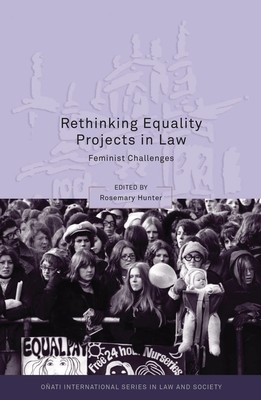
- We will send in 10–14 business days.
- Publisher: Hart Publishing
- Year: 2008
- Pages: 201
- ISBN-10: 1841138401
- ISBN-13: 9781841138404
- Format: 15.8 x 23.6 x 2 cm, hardcover
- Language: English
- SAVE -10% with code: EXTRA
Rethinking Equality Projects in Law (e-book) (used book) | bookbook.eu
Reviews
Description
The concept of equality has been a key animating principle of modern feminism, and has been highly productive for feminist legal thought and feminist politics concerning law. Today however, given the failure to achieve material and psychic equality for women, feminists have come to challenge the usefulness of equality as a concept, a particular definition, or a basis for strategising. The papers in this collection reflect these concerns, primarily in the context of English-speaking, common law cultures. Collectively, the papers analyse a range of equality projects across a number of areas of public and private law, considering both competing conceptions of equality and alternatives to it. In taking stock across a century and a half and around the globe, the book illustrates the range of ways in which equality projects in law have been challenged by, and remain a challenge for, feminism.
EXTRA 10 % discount with code: EXTRA
The promotion ends in 17d.21:49:36
The discount code is valid when purchasing from 10 €. Discounts do not stack.
- Publisher: Hart Publishing
- Year: 2008
- Pages: 201
- ISBN-10: 1841138401
- ISBN-13: 9781841138404
- Format: 15.8 x 23.6 x 2 cm, hardcover
- Language: English English
The concept of equality has been a key animating principle of modern feminism, and has been highly productive for feminist legal thought and feminist politics concerning law. Today however, given the failure to achieve material and psychic equality for women, feminists have come to challenge the usefulness of equality as a concept, a particular definition, or a basis for strategising. The papers in this collection reflect these concerns, primarily in the context of English-speaking, common law cultures. Collectively, the papers analyse a range of equality projects across a number of areas of public and private law, considering both competing conceptions of equality and alternatives to it. In taking stock across a century and a half and around the globe, the book illustrates the range of ways in which equality projects in law have been challenged by, and remain a challenge for, feminism.


Reviews